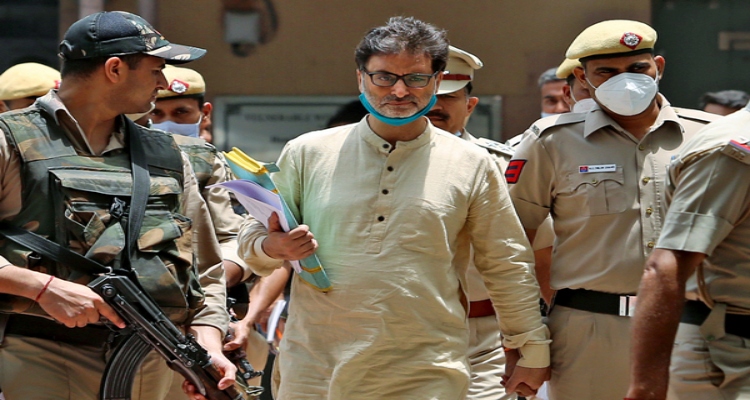
The Supreme Court on Wednesday granted 2 weeks to the co-accused in the Yasin Malik case to respond to the Central Bureau of Investigation’s plea seeking to transfer trials in 2 separate cases against him.
The bench, comprising Justices Abhay S. Oka and Augustine George Masih, scheduled the next hearing for January 20, 2025.
During the proceedings, the court was informed that one of the accused had passed away. The bench noted that all accused must be given an opportunity to be heard if the trial is to be transferred.
Previously , the Supreme Court suggested the possibility of conducting the trial in a makeshift courtroom within the jail premises. The court remarked that even Ajmal Kasab, the 26/11 Mumbai attacks convict, was given a fair trial, emphasizing the importance of justice in cases involving terrorism.
This suggestion arose during a hearing on the CBI’s plea challenging the Jammu court’s order requiring Malik’s physical presence during trial proceedings. Solicitor General (SG) Tushar Mehta informed the bench that Tihar Jail, where Malik is currently incarcerated, has a fully functional courtroom with video conferencing facilities. He stressed that the central agency does not wish to transfer Malik to Jammu and Kashmir due to security concerns.
Background of the Case
Yasin Malik, a terror convict and separatist leader, faces charges in two high-profile cases:
1. The 1989 abduction of Rubaiya Sayeed, daughter of former Union Home Minister Mufti Mohammad Sayeed.
2. The killing of four IAF personnel in 1990.
In September 2023, the Additional Sessions Judge (TADA/POTA), Jammu, issued production warrants for Malik’s physical appearance for cross-examination of witnesses. However, the Supreme Court stayed this order, citing security risks and logistical concerns.
Security Concerns Raised by the CBI
The CBI’s plea to transfer the trial highlighted significant security risks associated with Malik’s physical presence in court. SG Mehta previously expressed concerns about potential threats, including escape attempts, abduction, or harm to Malik.
The Solicitor General referred to an order under Section 268 of the Criminal Procedure Code (CrPC), issued by the Ministry of Home Affairs, which prohibits jail authorities from taking certain convicts out of jail premises for security reasons.
The Supreme Court’s decision to grant time for responses from the co-accused underscores the importance of ensuring a fair and comprehensive trial process. The upcoming hearing in January 2025 will likely address the feasibility of conducting trials within Tihar Jail and the broader implications of the case for justice and national security.
This development highlights the judiciary’s efforts to balance security concerns with the principles of justice, even in sensitive cases involving terrorism.
Read More: Supreme Court, Delhi High Court, States High Court, International




